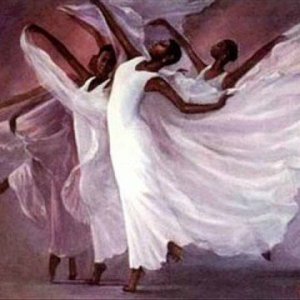- Jan 3, 2005
- 362
- 11
Africa highlights 2004 by afrol News
afrol News - Negative news often dominate the international coverage of Africa. 2004 however has seen much more than the crises in Darfur and Côte d'Ivoire. Peace has returned to many more countries, democracy and human rights are strengthening in Africa and the economy is booming in many countries. The link between democracy and development has been demonstrated and the outlook for 2005 is mostly positive.
2004 has been a generally positive year regarding the consolidation of democracy and human rights in Africa. The continent's most repressive regimes - Eritrea, Equatorial Guinea, Sudan, Zimbabwe, Swaziland, The Gambia and most of North Africa - kept falling deeper into dictatorship. Most semi-developed democracies however experienced progress, and only Côte d'Ivoire was added to the fold of very repressive regimes.
Large progress was noted in many countries. In Kenya, democracy finally took a firm hold with the election of Mwame Kibaki. Malawi avoided slipping back to repression and makes great progress under Bingu wa Mutharika. New-found peace gave hope for democracy and human rights in Sierra Leone and Liberia, and even Congo Kinshasa and Burundi may soon follow that path. Coup governments in Guinea-Bissau and the Central African Republic are in transition to democracy.
Democratic elections in Botswana reaffirmed the country's position as Africa's most consolidated democracy. Only few incidents in the elections in Ghana, Namibia and Niger also contributed to consolidate democracy. Even in Comoros, democratic progress was made. In Togo, early elections in 2005 may finally lead to the introduction of democracy. Thus, one of Africa's most repressive regimes of the 1990s may at last be history. Another good news was the progress of women in African parliaments and governments.
The Mozambican poll however turned out a disappointment regarding the decade of democratisation experienced, although it probably reflected the people's will. That was not the case in Algeria and Cameroon, where President Abdelaziz Bouteflika and Paul Biya gave the electorate no chance of expressing its will. Upcoming polls in Zimbabwe stand few chances of becoming better.
While democracy and human rights were strengthened in most of Africa, some severe setbacks were noted. The self-declared republic of Somaliland is slipping off its road to democracy, as afrol News documented in 2004. Nigeria showed ambiguous signs of strengthening democracy while failing to secure human rights, as was the case in Rwanda. Even in São Tomé and Príncipe, the new-found oil posed a threat to democracy.
War remained the strongest threat to democracy and human rights. Congo Kinshasa is on its transition to peace and democracy, but new fighting in the east could threaten that progress. In Côte d'Ivoire, President Laurent Gbagbo turned more repressive as the conflict goes on. In Sudan's Darfur region, there even seems to have been plans of a genocide that almost succeeded. afrol News was the first media to report on this, already in 2003. In Eritrea, war threats deepened repression.
The last few years have however seen more conflict resolutions than new wars, much owing to the positive role of the African Union (AU). Reconstructions are under way in Angola, Sierra Leone, Liberia and Guinea-Bissau. An end to conflict is in sight for Congo Kinshasa, Burundi, Somalia, South Sudan and Senegal's Casamance province.
Only in Moroccan-occupied Western Sahara, foreign troops still hinder progress. Diplomatic pressure against Morocco was however increased this year, with South Africa establishing ties with the exiled Saharawi Republic. Also economic pressure increased - with divestment in oil companies operating in the occupied territory and focus on investments in Saharawi fisheries - demonstrating that economic ethics gained ground in 2004.
Positive economic trends
In fact, 2004 strongly demonstrated the important link between economy and democracy, as it is also emphasised by Africa's own initiative for development, NEPAD. In Zimbabwe, years of a deteriorating rights situation have resulted in a total economic collapse. In Ghana, Kenya and Madagascar, new-found democracy and governments dedicated to development have achieved substantial foreign investments.
Economic pressure against Togo even has resulted in significant democratisation. Even Colonel Muammar Ghaddafi's Libya has bowed into the hard facts of economic isolation and done off with former state terrorist policies. As Libya opens up economically, there are signs that Colonel Ghaddafi even might agree to improve the very poor human rights situation in the country.
Even the much criticised International Monetary Fund (IMF) may refer to successes in its Africa policies. Pressure to fight corruption and promote transparency has already caused deep ploughing reform in oil producing Congo Brazzaville, which will give the people control over oil revenues. Gabon is preparing similar moves, which could revolutionise President Omar Bongo's corrupt regime.
An oil boom all over Atlantic Africa was strengthened this year, and may redraw the economic map of the continent. 2004 saw two new African oil producers, Chad and Mauritania, where the economy is set to turn upside down. Gas and oil production increased significantly in Equatorial Guinea, Angola and Nigeria, and even Gabon seems to turn its negative production trend. More oil producing countries soon will emerge in West and Central Africa.
Also outside Africa's growing number of oil producing countries, economic development was mostly strong in 2004. Even drought struck countries as Lesotho experienced strong growth. South Africa was finally back on track to become a regional power-house. Cape Verde even stopped being a "least developed country" this year.
Food security
Food security nevertheless again was an important issue in Africa in 2004. And it is increasingly a difficult matter to report on as many African governments and a worldwide readership call for "positive news from Africa." afrol News however has published several news articles a week on this topic -despite relative low reader response - in an effort to inform about smaller and larger crises and hopefully triggering a response from donors.
Even the most publicised food security related topic this year, the desert locust invasion in West and North Africa, however ended with a limited donor response for FAO, WFP and national governments. Lacking funds for the drought crisis in Swaziland, on the other hand, was mostly due to the King's scandalous personal spending. On the good news, most of the Sahel experienced its second year of excellent harvests.
Africans and African governments in no way just stood passively by, watching the many food crises. Most food aid was paid by national governments, and countries like Angola managed to strongly increase food security. Bold schemes to develop agriculture were launched, as in Nigeria, which plans to triple its rice production by 2007. Some countries, like Namibia, also responded by introducing land reforms.
2005
An upcoming new year is always connected with hope of a brighter future. For Africa, there are many signs of a positive 2005. Important initiatives to strengthen the economy and human rights are on their way, while there are signs of less military conflicts. 2005 starts with hopes of peace in South Sudan, where a peace deal has finally been reached, northern Uganda, where peace talks have started, and Somalia, where a new government may end years of conflict if it plays its cards well.
Democratisation and improved economic and civilian rights may be expected in Congo Kinshasa, Burundi, Togo, Liberia, Guinea-Bissau and the Central African Republic. However, new peace initiatives are needed in Côte d'Ivoire and Darfur, where the process has derailed. If they fail, disaster could hit millions.
Fears of a deteriorating situation are mainly concentrated on Nigeria, where the north-south split seems to deepen and civil wars cannot be ruled out any more. Also in Western Sahara, renewed warfare is very possible as the peace process fails. Zimbabwe, Eritrea, Equatorial Guinea and The Gambia are prone for rebellion, which could turn bloody.
Despite the warnings, however, future looks brighter for most Africans. Large countries such as Angola, Ethiopia and Kenya can concentrate their efforts on economic development and improved living conditions. Foreign investors are now attracted by a record number of African countries. With opening markets in the North, Africa may start heading out of its poverty trap.
By Rainer Chr. Hennig
http://www.afrol.com/features/15244
afrol News - Negative news often dominate the international coverage of Africa. 2004 however has seen much more than the crises in Darfur and Côte d'Ivoire. Peace has returned to many more countries, democracy and human rights are strengthening in Africa and the economy is booming in many countries. The link between democracy and development has been demonstrated and the outlook for 2005 is mostly positive.
2004 has been a generally positive year regarding the consolidation of democracy and human rights in Africa. The continent's most repressive regimes - Eritrea, Equatorial Guinea, Sudan, Zimbabwe, Swaziland, The Gambia and most of North Africa - kept falling deeper into dictatorship. Most semi-developed democracies however experienced progress, and only Côte d'Ivoire was added to the fold of very repressive regimes.
Large progress was noted in many countries. In Kenya, democracy finally took a firm hold with the election of Mwame Kibaki. Malawi avoided slipping back to repression and makes great progress under Bingu wa Mutharika. New-found peace gave hope for democracy and human rights in Sierra Leone and Liberia, and even Congo Kinshasa and Burundi may soon follow that path. Coup governments in Guinea-Bissau and the Central African Republic are in transition to democracy.
Democratic elections in Botswana reaffirmed the country's position as Africa's most consolidated democracy. Only few incidents in the elections in Ghana, Namibia and Niger also contributed to consolidate democracy. Even in Comoros, democratic progress was made. In Togo, early elections in 2005 may finally lead to the introduction of democracy. Thus, one of Africa's most repressive regimes of the 1990s may at last be history. Another good news was the progress of women in African parliaments and governments.
The Mozambican poll however turned out a disappointment regarding the decade of democratisation experienced, although it probably reflected the people's will. That was not the case in Algeria and Cameroon, where President Abdelaziz Bouteflika and Paul Biya gave the electorate no chance of expressing its will. Upcoming polls in Zimbabwe stand few chances of becoming better.
While democracy and human rights were strengthened in most of Africa, some severe setbacks were noted. The self-declared republic of Somaliland is slipping off its road to democracy, as afrol News documented in 2004. Nigeria showed ambiguous signs of strengthening democracy while failing to secure human rights, as was the case in Rwanda. Even in São Tomé and Príncipe, the new-found oil posed a threat to democracy.
War remained the strongest threat to democracy and human rights. Congo Kinshasa is on its transition to peace and democracy, but new fighting in the east could threaten that progress. In Côte d'Ivoire, President Laurent Gbagbo turned more repressive as the conflict goes on. In Sudan's Darfur region, there even seems to have been plans of a genocide that almost succeeded. afrol News was the first media to report on this, already in 2003. In Eritrea, war threats deepened repression.
The last few years have however seen more conflict resolutions than new wars, much owing to the positive role of the African Union (AU). Reconstructions are under way in Angola, Sierra Leone, Liberia and Guinea-Bissau. An end to conflict is in sight for Congo Kinshasa, Burundi, Somalia, South Sudan and Senegal's Casamance province.
Only in Moroccan-occupied Western Sahara, foreign troops still hinder progress. Diplomatic pressure against Morocco was however increased this year, with South Africa establishing ties with the exiled Saharawi Republic. Also economic pressure increased - with divestment in oil companies operating in the occupied territory and focus on investments in Saharawi fisheries - demonstrating that economic ethics gained ground in 2004.
Positive economic trends
In fact, 2004 strongly demonstrated the important link between economy and democracy, as it is also emphasised by Africa's own initiative for development, NEPAD. In Zimbabwe, years of a deteriorating rights situation have resulted in a total economic collapse. In Ghana, Kenya and Madagascar, new-found democracy and governments dedicated to development have achieved substantial foreign investments.
Economic pressure against Togo even has resulted in significant democratisation. Even Colonel Muammar Ghaddafi's Libya has bowed into the hard facts of economic isolation and done off with former state terrorist policies. As Libya opens up economically, there are signs that Colonel Ghaddafi even might agree to improve the very poor human rights situation in the country.
Even the much criticised International Monetary Fund (IMF) may refer to successes in its Africa policies. Pressure to fight corruption and promote transparency has already caused deep ploughing reform in oil producing Congo Brazzaville, which will give the people control over oil revenues. Gabon is preparing similar moves, which could revolutionise President Omar Bongo's corrupt regime.
An oil boom all over Atlantic Africa was strengthened this year, and may redraw the economic map of the continent. 2004 saw two new African oil producers, Chad and Mauritania, where the economy is set to turn upside down. Gas and oil production increased significantly in Equatorial Guinea, Angola and Nigeria, and even Gabon seems to turn its negative production trend. More oil producing countries soon will emerge in West and Central Africa.
Also outside Africa's growing number of oil producing countries, economic development was mostly strong in 2004. Even drought struck countries as Lesotho experienced strong growth. South Africa was finally back on track to become a regional power-house. Cape Verde even stopped being a "least developed country" this year.
Food security
Food security nevertheless again was an important issue in Africa in 2004. And it is increasingly a difficult matter to report on as many African governments and a worldwide readership call for "positive news from Africa." afrol News however has published several news articles a week on this topic -despite relative low reader response - in an effort to inform about smaller and larger crises and hopefully triggering a response from donors.
Even the most publicised food security related topic this year, the desert locust invasion in West and North Africa, however ended with a limited donor response for FAO, WFP and national governments. Lacking funds for the drought crisis in Swaziland, on the other hand, was mostly due to the King's scandalous personal spending. On the good news, most of the Sahel experienced its second year of excellent harvests.
Africans and African governments in no way just stood passively by, watching the many food crises. Most food aid was paid by national governments, and countries like Angola managed to strongly increase food security. Bold schemes to develop agriculture were launched, as in Nigeria, which plans to triple its rice production by 2007. Some countries, like Namibia, also responded by introducing land reforms.
2005
An upcoming new year is always connected with hope of a brighter future. For Africa, there are many signs of a positive 2005. Important initiatives to strengthen the economy and human rights are on their way, while there are signs of less military conflicts. 2005 starts with hopes of peace in South Sudan, where a peace deal has finally been reached, northern Uganda, where peace talks have started, and Somalia, where a new government may end years of conflict if it plays its cards well.
Democratisation and improved economic and civilian rights may be expected in Congo Kinshasa, Burundi, Togo, Liberia, Guinea-Bissau and the Central African Republic. However, new peace initiatives are needed in Côte d'Ivoire and Darfur, where the process has derailed. If they fail, disaster could hit millions.
Fears of a deteriorating situation are mainly concentrated on Nigeria, where the north-south split seems to deepen and civil wars cannot be ruled out any more. Also in Western Sahara, renewed warfare is very possible as the peace process fails. Zimbabwe, Eritrea, Equatorial Guinea and The Gambia are prone for rebellion, which could turn bloody.
Despite the warnings, however, future looks brighter for most Africans. Large countries such as Angola, Ethiopia and Kenya can concentrate their efforts on economic development and improved living conditions. Foreign investors are now attracted by a record number of African countries. With opening markets in the North, Africa may start heading out of its poverty trap.
By Rainer Chr. Hennig
http://www.afrol.com/features/15244






 ... please make yourself at home ...
... please make yourself at home ... 